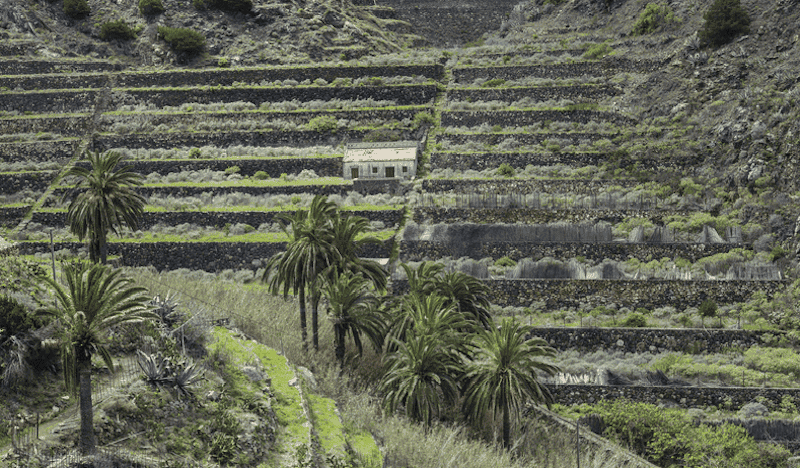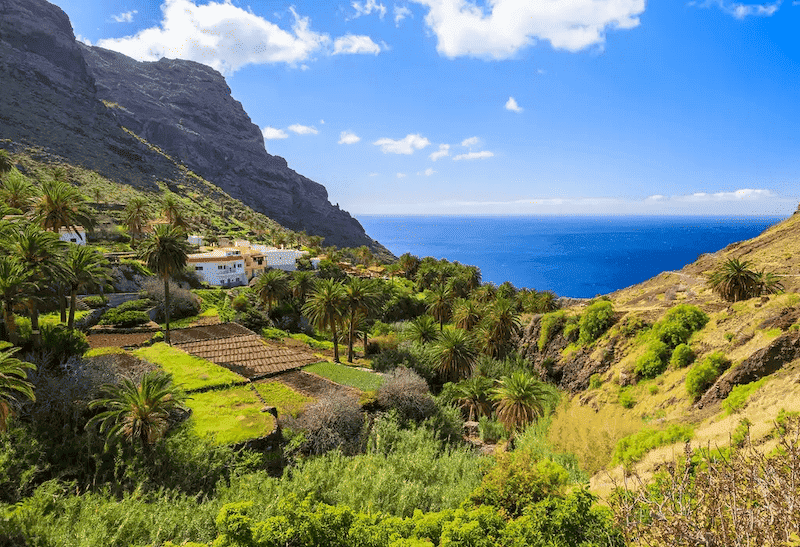Initiatives to Combat Food Insecurity in the Canary Islands
Food insecurity has become an issue in the Canary Islands, an archipelago located off the northwest coast of Africa. Despite the islands' natural beauty and tourist appeal, many residents struggle to put food on the table. This blog explores the historical agricultural practices, dependency on imports, and the effects of climate change that contribute to food insecurity in the Canary Islands. It also highlights the water-smart agricultural initiative, Growing To Give, along with its other programs that are strive to combat food insecurity on the islands.
Food insecurity, defined as a lack of access to affordable, nutritious food, has descended on the islands creating significant hardship for its residents. Despite the region's fertile volcanic soil and favorable climate for agriculture, historical practices that waste a tremendous amount of water have contributed to the current state of food insecurity.
Historical Agricultural Practices and Their Impact on Food Security
The Canary Islands have a long history of terracing that have shaped the food security situation on the islands. Terraced farms cut into the volcanic hills on the island, such as single-crop cultivation and virtually zero diversification, have led to a heavy reliance on specific crops. This lack of agricultural diversity leaves the islands vulnerable to crop failure, pests, and diseases. Additionally, the introduction of cash crops for export, such as bananas and tomatoes, has further reduced the availability of locally grown food for the residents.
Dependency on Imports and Its Contribution to Food Insecurity on the Island
The Canary Islands heavily rely on food imports to meet the demands of its growing population. While imports ensure a constant supply of food, they also contribute to food insecurity. Reliance on imports makes the islands susceptible to disruptions in supply chains, such as price fluctuations and transportation issues. Additionally, the high costs associated with importing food can make it unaffordable for many residents, further exacerbating food insecurity.
The Effects of Climate Change on Island Food Security
The effects of climate change also pose significant challenges to food security in the Canary Islands. Rising temperatures and changing rainfall patterns have resulted in drier summers, reducing water availability for growing food. Water scarcity affects crop yields and threatens the viability of traditional farming practices. Furthermore, extreme weather events, such as storms and heatwaves, can cause damage to crops and infrastructure, further compromising food security.
Drier Summers and the Challenges They Pose for Agriculture
The drier summers in the Canary Islands have presented numerous challenges for agriculture. Farmers are forced to adapt their practices to ensure the sustainability of their crops. Water conservation techniques, such as drip irrigation and rainwater harvesting, have become essential for maintaining some semblance of agricultural productivity. Local farmers are also exploring drought-resistant crop varieties and implementing soil conservation techniques to mitigate the effects of drier summers.
Terraced Farming on the Volcanic Slopes of the Canary Islands
One unique adaptation to the volcanic landscape of the Canary Islands is terraced farming. The steep slopes of the islands are transformed into a series of flat platforms, enabling farmers to cultivate crops in otherwise challenging terrain. Terraced farming maximizes land use and minimizes soil erosion, making it an effective method for sustainable agriculture on the islands. This innovative approach has helped increase local food production but at a cost – there is not enough water on the island to irrigate the all of the terraces.
Growing To Give: Initiatives and Programs Combating Food Insecurity in the Canary Islands
To address the issue of food insecurity in the Canary Islands, various initiatives and programs have been established. One notable initiative is Growing To Give, a community-driven project that aims to promote sustainable agriculture and improve food access. The project focuses on implementing water-smart agriculture technology designed to double food production while using 90% less water than drip or spray irrigation systems. Indeed, so much food will be grown that farmers will be able to donate surplus produce to those in need.
Food insecurity in the Canary Islands is a complex issue influenced by historical agricultural practices, water scarcity, dependency on imports, and the effects of climate change. However, initiatives such as Growing To Give are making a positive impact with the introduction of more sustainable, water-smart agricultural technologies, such as Crop Circle Farms & Gardens to enhance access to fresh produce. By addressing the root causes of food insecurity and empowering local communities, these initiatives provide hope for a more secure and resilient food system in the Canary Islands.




.png)
.png)
.png)

.png)